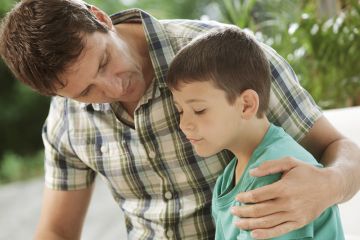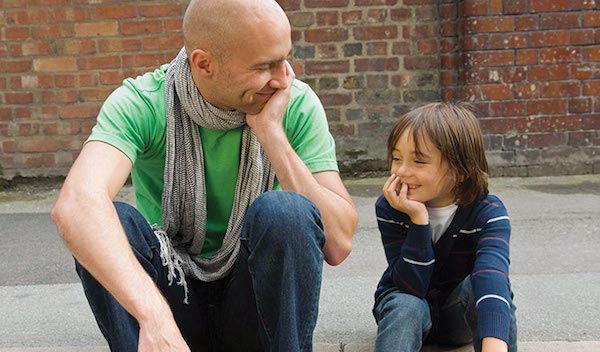Talking about death and who can help
[T]he death of someone close is one of the hardest things anyone has to face. It can be especially difficult to help a child manage their grief while you’re dealing with your own. Although you can’t protect a child from the pain that follows a bereavement there are things you can do to help them come to terms with their loss.
Talking about death
Although you may wish to protect your child from unhappiness, avoiding talking about the person who died isn’t helpful and can cause problems in later life. Talking about death can be difficult, even for people who are familiar with it. You may worry that you will frighten your child or say the wrong thing. But it’s important to be open and to answer any questions they have as honestly as you can. What children imagine can be far worse than the reality.
- Try to avoid telling your child not to worry or be sad. It’s healthy to get attached to people. And, like you, your child might find it hard to control their feelings.
- Don’t try to hide your pain, either – it’s alright to cry in front of a child. It can help to let them know why you’re crying.
- Be sure to give the child plenty of reassurance. Let them know they’re loved and that there are still people who will be there for them. A cuddle can make a big difference and make them feel cared for. It’s also a good idea to stick to a routine, if you can. This can help the child feel more secure.
Sometimes it might seem as though they haven’t heard what you’ve said or aren’t affected by it. They could also seem to move in and out of their grief – being upset at some times and not at others. This is just their way of coping and they’ll deal with what they’ve been told in their own time.
Child Bereavement UK has a useful information sheet (PDF download) for explaining death to children. Here are some other things that may help:
Be honest
Children need to know what happened to the person that died. Try to explain in clear, simple language that’s right for their age and level of experience. You might also try giving them information small amounts at a time, especially young children, as this can help them understand. Once you’ve explained that someone has died, the details can follow.
Use plain language
Talking around the subject doesn’t help and may lead to misunderstandings. Avoid explanations such as ‘the person has ‘gone to sleep’ or ‘gone away’. They may make your child frightened to go to sleep or worry as soon as you leave the house in case you don’t come back. Even if you believe the person who died has gone to heaven this can be confusing and worrying for a small child.
Encourage questions
Be prepared for your child to be curious and to ask the same questions again and again. This can be distressing but remember it’s a part of their need for reassurance and helps them process the information.
It’s not easy, even for adults, to understand death and dying. A child’s understanding will depend on their age, gender, stage of development, family background, personality and previous experience. Think about what to say and give the same answers each time. Be led by what they want to know and don’t be afraid to tell them you don’t know the answer to something.
Reassure them
It’s common for children to feel that the person has died as a result of something they may have said or done. Explain simply how and why they’re not to blame.
Ask them to tell their story
Asking children to tell their story of the death and experience of grief will let them know they are important and that their relationship with the person who died has been recognised. It can help you to understand what they know about what happened and correct anything that’s not quite accurate. It can also help children to discover that the way they see things changes with time.
Listening to their story will also help you better understand the child’s grief. Avoid comparing it to what you think they should be feeling or overusing words like ‘time’ as a way of trying to reassure them.
What people want more than anything, whether child or adult, is control over grief, feelings, and needs. Immediate comfort, the ability to express their feelings about the loved one and stability are all important in helping someone cope.
People who can help
Each person’s grief is as individual as the person who’s been bereaved and it can sometimes be easier to deny feelings than to acknowledge them. How children respond will depend on many things including:
- their age
- their stage of development
- what they’ve read or seen on TV
- their understanding of death and dying
Sometimes two children from the same family might need completely different types of support. The relationship that the child had with the person who died can also affect how they grieve.
Take things one day at a time. If at any time you feel unable to cope remember you’re not alone. Friends, family, healthcare professionals, teachers at your child’s school and others can all help. There may also be specialist child bereavement services that you can use including Child Bereavement Network , Cruse Bereavement Care or Winston’s Wish .
Alternatively there may be a local children’s bereavement service in your area – ask your GP or search online.
External websites
ChildLine: 0800 1111 (24-hour helpline)
Samaritans: 116 123 (24-hour helpline)
Complete Article HERE!

